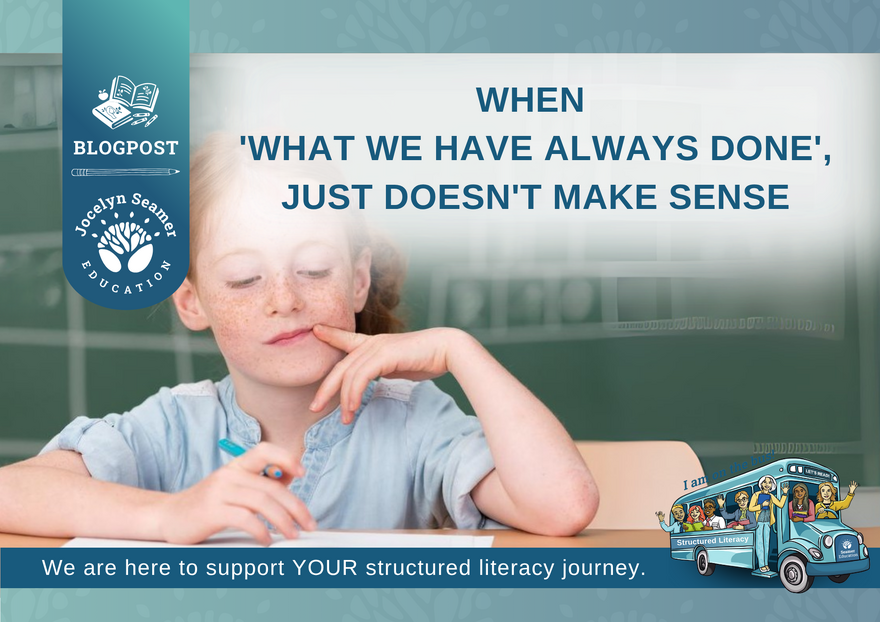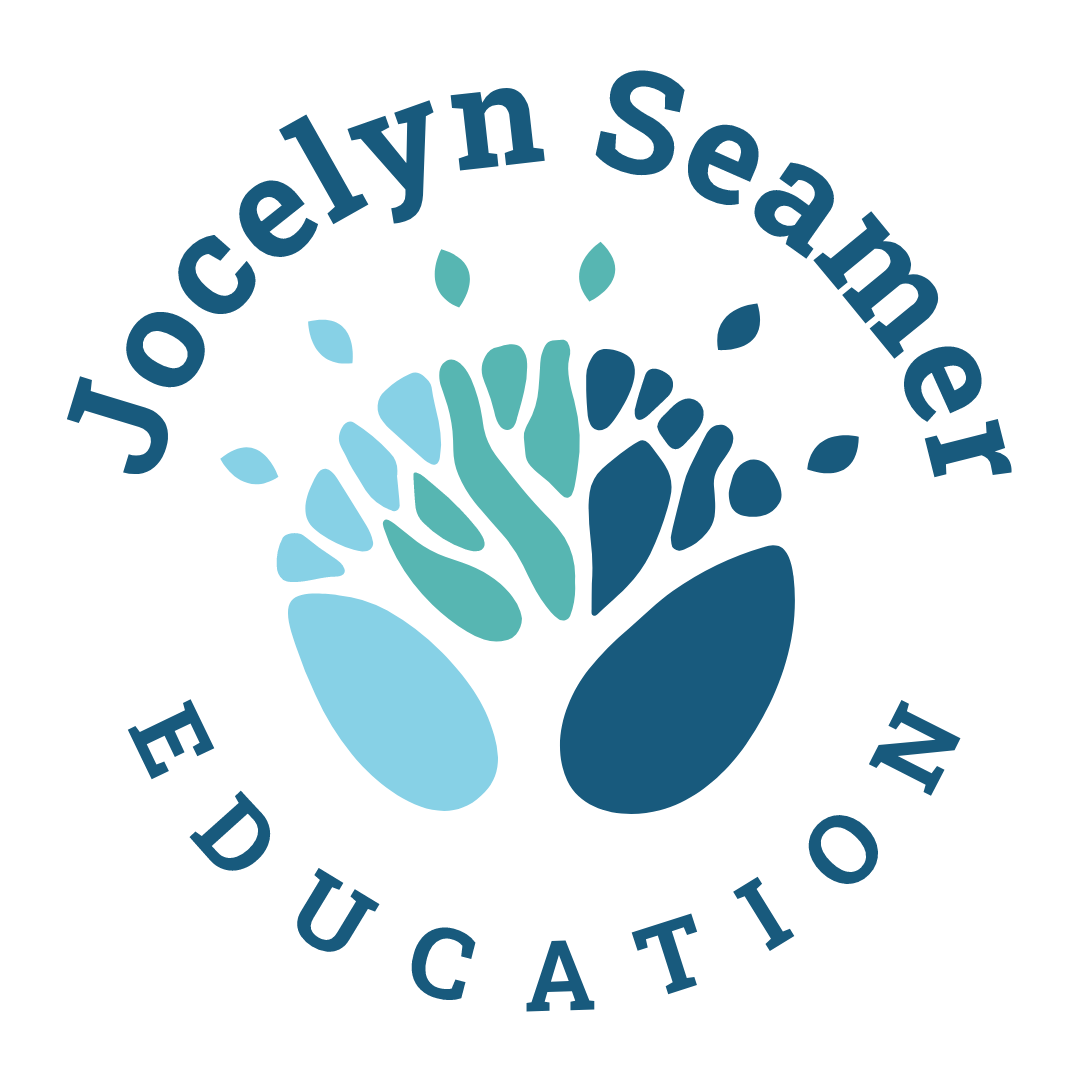When 'What We Have Always Done', Just Doesn't Make Sense

I spend a lot of time interacting with teachers. Whether it is through social media, emails, Teach Along Course sessions or on the phone, they all say the same thing about writing instruction. “It just doesn’t make sense to ask a student in the early years, who can barely write a simple sentence, to write a complete text”. Here are some of the things that I have heard:
“We skip to full pieces of text far too quickly.”
“I feel like my students just aren’t writing enough.”
“Asking all Foundation students to write whole, fully formatted pieces of writing is silly.”
“There are always just some kids who I don’t know how to help. We do the same supported lesson 7 times and they still can’t do it.”
“I know that getting them to copy things isn’t great, but I just don’t know what else to do when I have the whole class to look after, and they can’t do it on their own.”
“There is way too much emphasis on genre. We should be covering different types of texts in some way, but genre isn’t everything.”
“NAPLAN results drive our leadership’s expectations of genre too much.”
“There is never enough time to do all the writing instruction.”
“I feel like I am not doing enough.”
“We need to focus more on sentences, but I don’t know how to fit it all in.”
“Students need to be able to write for a purpose.”
If you are nodding your head right now, I hope that it is with relief that you are not alone in your own thoughts about how we teach writing in the early years! I know that I have certainly had my own battles with writing instruction over the years, particularly while working in schools where lots of children had difficulties with speech and language and came to year 1 and 2 with foundation level skills (and sometimes less). The battle came about because I was pretty sure that I was asking them to do too much, but I felt this ENORMOUS pressure to get them producing whole pieces of text.
I think that the battle also came about because while I was feeling relatively confident in delivering systematic reading instruction, I didn't realise that I was still stuck on the hamster wheel of whole language/ balanced literacy practice when it came to writing.

Here’s an embarrassing list of the things that I did before I realised that they just didn’t make sense:
- Conducted (what I thought was) joint construction where students weren’t actually actively involved.
- Scribed sentences for children who couldn’t write and then got them to copy them in the mistaken belief that if they did this enough, they would just ‘pick it up’.
- Decided that if I just gave children motivation, they would be able to write better. After all, if we make things fun, doesn’t that increase a student’s level of skill. (The answer is no!)
- Gave children who couldn’t write a sentence a daily ‘journal writing’ experience without any true scaffolding or support.
- Told kids to ‘just have a think about it’ when they couldn’t come up with the language for their own writing.
- Visited other schools and brought back their ‘balanced literacy’ practices to my own classroom. I totally got caught up in the ‘shiny bright things’ approach.
- Expected that my students would be able to write genre related pieces of writing if I read them enough examples and modelled how to write them.
- Mixed up a child’s ability to participate in a guided lesson with them being able to write independently. This led to me overloading them cognitively and stifling any writing ability they had.
I would NEVER do these things now, but I am sharing this list with you to reinforce that our practice is an ever-developing skill. When I was doing all the embarrassing things, I wasn’t getting results for my students, and was just looking for more. The problem was that I was trying flawed strategy after flawed strategy with predictable results. There were always children who did ok. They were the children who understood what was involved. These were the same children who would have done well in reading regardless of how we taught them. There was also a group of children I felt could have been doing more, but I didn’t know how to get them over the line. And of course, there were the strugglers whose poor working memories and need for many more repetitions than their peers made all learning difficult. How on earth was I supposed to meet all of their needs?
After a while, I just decided to ditch what I had been doing. I realised that I needed to TRULY put the explicit teaching model to work and apply the same rigorous approach that I was using in reading instruction to writing. I tried a few different things that took hours to prepare before realising that what I needed wasn’t to reinvent the wheel all the time, but to have a predictable, repeatable set of daily routines AND a predictable, repeatable ‘unit plan approach’ that would support EVERY child to succeed in writing, including in different text types, without exhausting me! I can almost hear you saying, ‘Come on now, Jocelyn. That sounds too good to be true’. But really, it isn’t!

 Jocelyn Seamer Education
Jocelyn Seamer Education
7 comments
Hi Jocelyn,
I'm wondering whether the first session is Monday the 5th of April or Tuesday the 6th?
Thank you.
Jo Pearson
Hi Joanne. I made a little error which is now fixed. The date is supposed to be Tuesday 6th April.
Hi Jocelyn, is the Masterclass suitable for all primary teachers or more focused on the early years (K-2)? Thanks.
Hi Maddy, there will certainly be take aways for all primary years. I hope to see you there!
I'm in NZ and super keen but the time is 10.30pm. I would live to be part of the live Q and A but am happy to watch a recorded webinar. Is this going to be recorded?
Hi Jane. The time zone difference between us is 2 hours. If you attend the evening sessions, they will start at 9:30 your time. If you come to the Sunday session, it will be 11am your time. :)
Hi Jocelyn,
I've just signed up for your masterclass... can't wait!
How do I download/ purchase the workbook?
Leave a comment